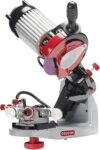
Best Electric Chainsaw Sharpeners
Keep the teeth biting: which electric sharpener gets a dull chain back to life—fast, clean, or both?
Dull chains slow everything down. One bad cut can turn a tidy job into a fight with wood and frustration.
They want a sharp chain without guessing angles, wasting time, or ruining a bar. Whether they work in a busy shop or do weekend felling, the right electric sharpener makes sharpening fast, repeatable, and—yes—almost satisfying.
Top Picks





Oregon Professional Hydraulic Bench Chain Grinder
A heavy-duty bench unit built for frequent use and consistent, shop-quality results thanks to hydraulic clamping and multiple profile wheels. It costs more and requires space, but for professional users the speed and repeatability pay back quickly.
Why professionals pick it
The Oregon Professional Hydraulic Bench Chain Grinder is designed with high-throughput shops and serious hobbyists in mind. Its hydraulic clamping automates vice pressure, delivering uniform contact between the cutter and the wheel — a must for repeatability across many chains.
Key features at a glance
Those features translate into faster job turnaround and more consistent tooth geometry than you get with portable sharpeners. The addition of a depth-gauge wheel makes this an effective one-stop maintenance machine: it can both restore tooth geometry and maintain proper depth stops.
Limitations and workshop notes
For commercial users, arborists, and anyone regrinding large numbers of chains, the hydraulic assist and robust feature set make this one of the more efficient choices on the market.
Einhell GE-CS 18 Li Cordless Chain Sharpener
A practical battery-powered sharpener that balances portability with thoughtful features like depth limiting, angle adjustment, and LED lighting. It’s a convenient choice for homeowners and landowners who already use cordless tools in the same battery ecosystem.
Summary
The Einhell GE-CS 18 Li is a battery-powered chain sharpener aimed at the cordless-tool user who wants quick, consistent results without returning to the workshop. It emphasizes protection against over-grinding with a depth-limiting feature and makes precise angle selection straightforward with a visible scale.
Useful features for practical use
Users who already own Einhell 18V batteries will find this particularly attractive, since it plugs into an existing battery pool to provide genuine portability. The tool is praised for making aftermarket chains viable again with minimal fuss — a few passes and a dull chain is serviceable for field work.
Caveats and tips
Overall, this unit is a strong choice for homeowners and mobile operators who need an easy-to-use, portable sharpener that minimizes material loss and reduces the learning curve.
Oregon Compact Mini Bench Chain Grinder
A compact bench-mounted sharpener that delivers consistent, shop-quality results for hobbyists and occasional users. It balances accuracy and footprint, but its smaller wheel size and plastic components make it less suited to high-volume professional use.
What it is and who it's for
The Oregon Compact Mini Bench Chain Grinder is a small, bench-mounted sharpener designed for homeowners, occasional users, and small shops that want a precise sharpening alternative to hand files. It aims to give consistent angles and cutter lengths without the floor space or cost of a professional machine.
Key features and benefits
The small footprint makes it easy to mount on a workbench or wall and it reliably restores uniform cutter geometry — a noticeable upgrade over hand filing when done carefully. Many users report that, with proper setup and a little practice, the unit produces repeatable results and helps avoid uneven tooth lengths that occur with field sharpening.
Limitations and practical tips
A few practical tips: take time to dial in the fence and use an external caliper for consistent cutter length if uniformity is critical; dress the wheel regularly to avoid burning cutters; and keep an extra wheel size on hand if you work with a range of chains. For weekend use and light shop tasks, this unit is an economical, capable pick.
Sharp Pebble Cordless Chain Sharpener Kit
A lightweight, cordless kit that helps users get back to cutting quickly with multiple wheel sizes and an angle guide. It’s a convenient field tool, though experienced users may find its runtime and torque lacking for heavy regrinds.
Quick take
The Sharp Pebble Cordless Chain Sharpener Kit is aimed at people who want a lightweight, portable sharpening kit that fits in a saw box. It bundles the tool with four wheel sizes, an angle guide, a wrench, and an eBook to help users get started quickly.
What it includes and why it matters
This kit is particularly useful for roadside or storm-clearing situations where stopping to remove chains or returning to a bench would cause long delays. Many owners report being able to restore workable sharpness in minutes, which can be the difference between finishing a job and packing up.
Practical limitations and user advice
For users who prioritize portability and speed for field maintenance, this kit is an affordable, easy-to-learn option that will keep saws productive between more thorough shop regrinds.
12V Portable Cordless Chain Sharpener
A genuinely portable, battery-powered option that gets dull chains back to work without removing them from the saw. It trades the absolute precision of a bench grinder for speed and convenience, so users who need shop-level accuracy should expect some compromise.
Overview
This 12V cordless chain sharpener is built for portability and speed: a handheld tool intended to let users sharpen a chain on the saw in minutes. Its selling point is convenience — no bench, no cord, and no need to swap chains back at the shop.
What it offers
For roadside tree work, storm cleanup, or weekend cutting where downtime is costly, this tool lets a user quickly restore bite to a chain. The titanium-coated bits resist wear better than inexpensive abrasive stones, and the included angle guide reduces the learning curve compared with purely freehand electric sharpeners.
Practical considerations and limitations
In short, this 12V unit is a solid companion for people who value mobility and speed over shop-perfect repeatability. It’s best positioned as a field-use tool to keep saws working between proper regrinds.
Final Thoughts
For professionals who sharpen frequently and need shop-quality, repeatable results, the Oregon Professional Hydraulic Bench Chain Grinder is the clear pick. Its hydraulic clamping, multiple profile wheels, and robust build deliver consistent angles and fast throughput. It shines in a busy shop or for someone who sharpens dozens of chains a week.
For homeowners, landowners, and anyone who values portability without sacrificing too much accuracy, the Einhell GE-CS 18 Li Cordless Chain Sharpener is the best choice. It balances battery-powered convenience with useful features—angle adjustment, depth limiting, and LED lighting—making quick, reliable touch-ups in the yard easy and convenient.
How to Choose and Use an Electric Chainsaw Sharpener
Choosing the right sharpener starts with honest questions about workload and location. Professionals who sharpen many chains weekly should prioritize repeatability, clamping stability, and wheel options. Hobbyists and landowners benefit most from portability, simplicity, and compatibility with their battery ecosystem.
Bench vs. Cordless: a quick comparison
| Use case | Best style | Example product |
|---|---|---|
| High-volume shop sharpening | Bench grinder | Oregon Professional Hydraulic Bench Chain Grinder |
| Weekend workshop / occasional shop use | Compact bench | Oregon Compact Mini Bench Chain Grinder |
| Backyard/cordless ecosystem | Cordless sharpener | Einhell GE-CS 18 Li Cordless Chain Sharpener |
| Fast field touch-ups | Lightweight cordless kit | Sharp Pebble Cordless Chain Sharpener Kit / 12V Portable |
Practical setup and calibration tips
Safety and maintenance
When to replace instead of resharpening
If cutters are repeatedly shortened by aggressive regrinding, or if there is substantial damage to rivets or the drive links, replacement may be more economical. Frequent regrinds reduce cutter volume; a bench grinder speeds the process, but it does not eliminate the eventual need for new chains.
By matching the tool to the task—hydraulic bench for volume and precision, compact bench for occasional shop work, and cordless units for fast field fixes—users get the best combination of speed, safety, and consistent cuts. They should prioritize tools that make consistent angles easy to set and maintain, because repeatability is what separates a good sharpen from a great one.
FAQ
Sharpen after every few tanks of gas or when the saw shows signs: it needs more pressure to cut, it produces fine sawdust instead of chips, or it pulls to one side. For regular cutting, a quick touch-up every 2–4 hours of cutting is common; major regrinds are less frequent.
Yes—many cordless field sharpeners (like the Sharp Pebble and 12V portable units) are designed for in-place touch-ups. Bench grinders give better accuracy but usually require removing the chain for full regrinds.
Improper angle, too much material removal, or overheating can shorten cutter life. Electric sharpeners with angle guides and depth limiting reduce the risk. They should be used with steady pressure, short passes, and periodic coolant or breaks to avoid heat build-up.
Cordless options are fine for routine touch-ups and light regrinds. For heavily damaged or very blunt cutters, a bench grinder—especially a heavy-duty model like the Oregon Professional Hydraulic unit—provides the torque and wheel options needed for faster, more accurate material removal.
Match the wheel to the chain pitch and cutter geometry. Smaller wheels are better for fine profiles and tight spaces; larger wheels remove metal faster and help with accurate angles. Bench units often include multiple wheels or support aftermarket profiles for specific chain types.



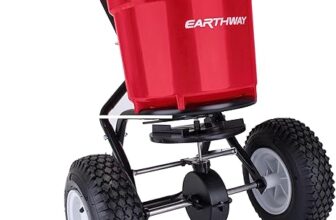
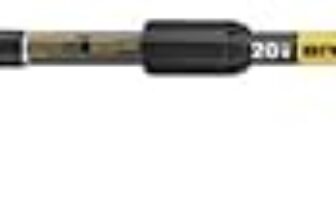
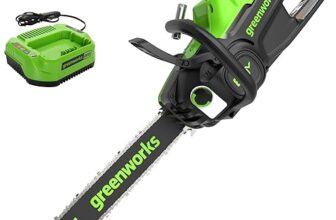
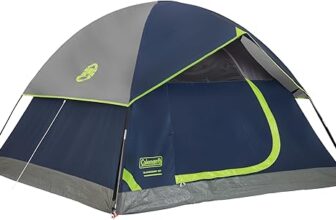

Bought the Oregon Compact from Amazon last month. Delivery was quick, packaging good, and the product matched the listing. I did have to return a different brand once because the angle guide was missing — Amazon’s return was painless.
One note: read reviews about wheel grit and compatibility. Some sellers bundle lower-quality wheels. Make sure you get the right profile for your chain pitch.
Good to know about Amazon returns. I always keep screenshots of the listing just in case.
Thanks Liam — excellent practical note. We tried to flag wheel quality concerns in the roundup. Buying from reputable sellers and checking included wheel specs helps avoid surprises.
Always check the model number on the wheel and match to your chain pitch (3/8″, .325, 1/4″, etc.). Wrong wheel = frustrating results.
I’m a homeowner with a small lot and only a couple of trees to trim each season. Which would you recommend for someone like me who wants something easy to use, durable, and not too expensive? I don’t want to mess up the chain but I also don’t want a learning curve.
Is the Einhell the safe middle ground? Or should I just get the Sharp Pebble for field use and take chains to a shop for heavy sharpening?
For homeowners: Einhell GE-CS 18 Li is a great middle ground if you already have 18V batteries, because it’s user-friendly and portable. If you rarely need sharpening or want the absolute simplest route, Sharp Pebble or the 12V titanium kit can cover quick touch-ups. For reprofiling or chains that are badly dulled, a bench grinder (or pro service) is best.
As a lazy homeowner, Sharp Pebble + occasional shop visits = perfect. I keep my chain healthy with quick touch-ups and avoid drama 😅
If you don’t own batteries already, the Compact Oregon is worth considering since it’s plug-in and simpler to use — no battery nonsense.
I’m torn between the Oregon Compact 310-120 and the Oregon Professional 620-120. I do weekend projects and a few paid jobs here and there.
I like that the Compact is smaller and cheaper, but I’m nervous about the plastic parts. Will it last a few years for hobbyist use? How different are the results in edge life and cutting speed?
Any owners who’ve used both want to weigh in?
I used the Compact before upgrading. For weekend/hobby use it lasted me 3-4 years without issues. The cut quality is very good — just slower if you do many chains. The Professional is noticeably more robust and faster, but you pay and need space.
I have the Compact and it’s been fine for 4 years. Prolly louder than kids screaming but otherwise OK 😅
If budget allows and you have room, pro is future-proof. If not, Compact will serve you fine. Also — keep spare wheels for either model.
Compact’s plastic parts feel light but aren’t fragile. I recommend keeping an eye on the grinding wheel size: the larger wheels on the Professional give a smoother profile, which can slightly extend tooth life.
Good summary. If you’re doing occasional paid work too, the Compact is usually sufficient. Save the Professional for steady, high-volume work where the hydraulic clamp increases throughput and consistency.
I bought a Sharp Pebble kit last summer for quick chainsaw jobs in the yard. The marketing promised ‘pro-level’ grab-and-go sharpening.
Reality: it’s excellent for touching up on the farm when you’re two hours from civilization, but don’t expect to reprofile a super-gummed-up chain. Runtime and torque are meh for heavy jobs.
Also — the PDF eBook they include is actually helpful for beginners (surprising!).
Does Sharp Pebble fit full-size chains easily? I’m not great at fiddly tools — wondering if it’s user-friendly.
Yep — used the Sharp Pebble on a hunting weekend. Got me back cutting in 10 minutes. Not for shop-level accuracy but perfect for emergency fixes.
Ha, I once tried to sharpen a completely trashed chain with a pocket sharpener and learned my lesson. Sharp Pebble is great to avoid that panic 🤦♀️
Totally agree — Sharp Pebble and similar kits shine when you need a fast field fix. For deep regrinds or profiled sharpening, a bench grinder or pro service is better.
I totally overthink sharpening. I stare at the chain like it’s a puzzle and then panic. 😅
I bought the Einhell for convenience and practice, and honestly the LED light made me feel like I had skillz. Still mangled one tooth tho lol. Any tips for steady hands and not gouging?
Practice on an old chain helps. Use light, consistent pressure and let the wheel do the work. Clamp the bar firmly, set the angle, and make the same number of passes per tooth. If you do a shallow pass first, you can correct course without removing too much metal.
If you really mess up, chains are cheap to replace. Consider it expensive practice 😆
I found marking the first tooth with a Sharpie helped me keep track of where I started. Little tricks like that save me from going in circles.
Also: breathe. Sounds dumb but being relaxed helps. And watch a couple of video demos — seeing technique in motion makes a big difference.
I’ve been running a small tree service for 7 years and finally upgraded to the Oregon Professional 120-Volt bench grinder (620-120).
Pros: hydraulic clamping is a game changer for repeatable angles, and the multiple profile wheels actually save time when switching chain types. It feels like a real shop tool.
Cons: it’s loud, takes up bench space, and you’ll pay for it up front. But if you’re doing dozens of chains a week, it paid for itself within a couple months for me.
If anyone’s on the fence between this and the Compact 310-120, think about volume — the Professional is built to be used daily.
Good to hear real-world validation. Mark, how often do you need to replace the profile wheels? I do light commercial work and worry about maintenance costs.
Sounds badass. I wish my garage had room for something that serious 😂. Does it come with multiple wheels or did you have to buy extras?
Thanks for the detailed breakdown, Mark — that’s exactly the kind of real-world use case we hoped to capture in the roundup. For readers doing occasional chains, the Compact is a better fit; pros who need repeatability will love the hydraulic clamp on the 620-120.
I’ve been using the 12V titanium-coated diamond bits kit (the portable cordless with 6 bits) when I go out chopping in remote spots. Pros: super portable, quick touch-ups, and those titanium wheels seem to hold up.
Cons: not as precise as a bench grinder and the battery dies faster if you try to grind lots of teeth. Also the angle guide sometimes slips if you don’t clamp the bar tight enough.
Thanks for sharing, Miguel. That’s exactly the tradeoff we tried to highlight — portable convenience vs. absolute precision. A tight clamp and slow, steady passes help reduce angle drift.
Do you carry spare batteries or just a power bank? I’ve considered a tiny solar panel but that sounds silly lol.
Quick technical point for anyone asking about wheel profiles: the Oregon bench units support multiple profile wheels which control the radius and edge geometry. If you switch between bar types a lot, getting extra profile wheels makes a big difference in cut performance.
Also, angle adjustment tolerances matter — a tiny error compounds over several teeth, so take your time or use a guided system.
Good call, Ben. We should’ve emphasized spare wheel compatibility in the guide — folks can optimize cutting performance by matching wheel profiles to their chain pitch and tooth type.
Does anyone sell pre-profiled wheel kits that cover the common chain sizes? Would be a pain to buy individual wheels for each chain.
Quick question — the Einhell Cordless GE-CS 18 Li looks tempting because I already own other Einhell 18V tools.
Is the battery the same 18V system they use across their tools? I hate buying tool-specific batteries. Also, anyone noticed the LED light being actually useful when you’re working low to the ground?
Yes, Aisha — the GE-CS 18 Li is part of Einhell’s 18V ecosystem, so batteries are interchangeable with many of their tools. The LED is modest but helpful for field touch-ups; it won’t replace a shop light but shines exactly where the wheel meets the tooth, which is handy for accuracy.
I have the Einhell 18V battery pack and it fits. The LED saved me a couple times when sharpening late evening — not super bright but focused.